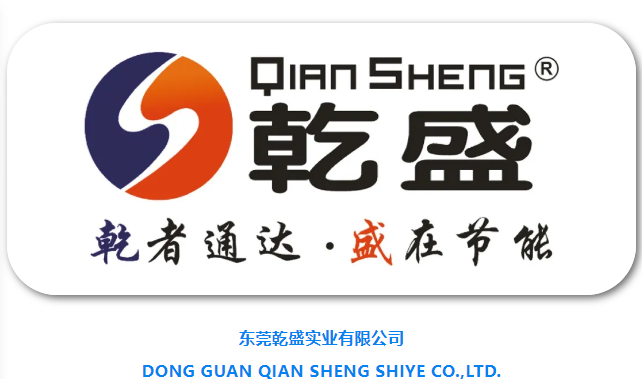As our urban centers grow, so does our demand for key resources, such as energy. Currently, cities are accountable for over 60% of resource use and an estimated 70% of global carbon emissions. In the Middle East particularly, countries have experienced unprecedented population growth, increased economic activity and consequently, increases in energy consumption.
Integration of sustainable systems
Fortunately, industry leaders and governments are placing sustainability at the heart of regional plans for urban development. The integration of sustainable systems is no longer a value-added benefit, but rather a necessary requirement.
I believe a vital element for sustainable development in our cities is energy management. Energy is a costly commodity representing an average of 25% of all operating costs in office buildings. This cost, however, can be reduced by using energy management to optimize HVAC systems employed in a building.
Effective energy management
Energy management involves proactive tracking, systemic management and thoughtful optimization of energy consumption in a building, with the goal of improving energy efficiency.
The concept of energy efficiency takes into account a variety of factors; we must consider system design, quality of installation and maintenance, efficiency rates and personal use. If we assume a system is designed with greatest efficiency in mind, its effectiveness is still deeply impacted by installation, maintenance and use.
‘Performance drift’ issues
One challenge we face with the efficiency of HVAC systems is ‘performance drift’. When first installed, and even in the first few months, HVAC systems operate immaculately. Over time, however, component efficiency and system conditions ‘drift’ away from the originally installed operating curve, meaning that efficiency and performance of the system can degrade incrementally.
The deteriorating performance of HVAC systems has consequences, such as unnecessary use of energy, resulting in higher costs and emissions, in addition to reduced comfort for building occupants.
Energy efficient HVAC pumps
In order to truly have an impact on energy consumption, a holistic approach must be adopted. Only by carefully examining and optimizing each part of the HVAC system, can we then find ways to improve it.
In my experience with Armstrong Fluid Technology, in the last decade, the technology for HVAC pumps has been enhanced to provide up to 70% energy efficiency savings through demand-based control and parallel pumping technology. These innovations enable the pumps to operate at optimum levels, consuming as little energy as possible.
Innovative smart technology
Systems that incorporate innovative smart technology enable more accurate system performance analysis and optimization. Pumps can function as highly accurate flow meters that provide valuable insight for building managers and operators.
Data from the intelligent connected pumps can be collected through active performance management software, which enables the HVAC system to learn, predict and optimize to deliver even greater energy efficiency and cost savings through maintained optimized performance.
 |
|
Systems incorporating innovative smart technology enable more accurate system performance analysis
|
Active performance management software
Active performance management software enables real time and historical data reporting that directly demonstrates system efficiency and savings. Given the global shift towards sustainable building construction, legislation on energy reporting is inevitable, therefore employing systems with this in-built capability can prove to be extremely beneficial in the future.
The software can also help maintain client comfort at all times by enabling predictive maintenance. Systems can provide alerts when they detect faults, allowing for early replacement before a full breakdown. This can be particularly helpful in mission critical applications such as hospitals.
Importance of analyzed data in system optimization
Evidently, collecting data is essential for many reasons, including preventing, and even reversing, the loss of energy efficiency. Without the ability to analyze data, buildings managers and operators cannot properly optimize mechanical systems, which results in unnecessary energy use, insufficient maintenance practices and any related costs.
There may be hesitation in the industry to incorporate more sophisticated systems as they require initial investment, however, the returns from using more efficient mechanical systems are impressive.
Executing energy upgrades for HVAC systems
Simple payback on energy upgrade projects is usually reached within 3 to 5 years. Furthermore, energy savings continue for the life of the system. Properly executed energy upgrades deliver up to 40% savings on energy consumption related to HVAC operation. Savings on that level for a large facility can be impactful for business operations.
Energy efficiency is not ‘visible’ but has the potential to have a transformative effect on climate change, if embraced on a large scale. If we consume energy only as we need to, then we consume less of it. This, in turn, reduces our consumption of fossil fuels and consequently our greenhouse gas emissions. Aside from short-term benefits, such as costs savings and increased operation efficiency, energy management has the ability to help conserve energy for generations to come.
Embracing energy saving solutions
If we embrace innovative energy saving solutions in the building services industry, then we can begin to make a difference. With the recent launch of plans for sustainable development, such as the Dubai Master Plan 2040, green infrastructure, supporting solutions, will thrive.
The global shift towards embracing sustainability has made individuals and organizations call into question their impact on our planet. Embracing sustainability is no longer a preference but a strategic business approach that helps to create long-term value on a social, economic and environmental level. The role of energy efficiency, and the systems that enable it, will inevitably play a key role in creating more sustainable buildings, communities and cities.






















